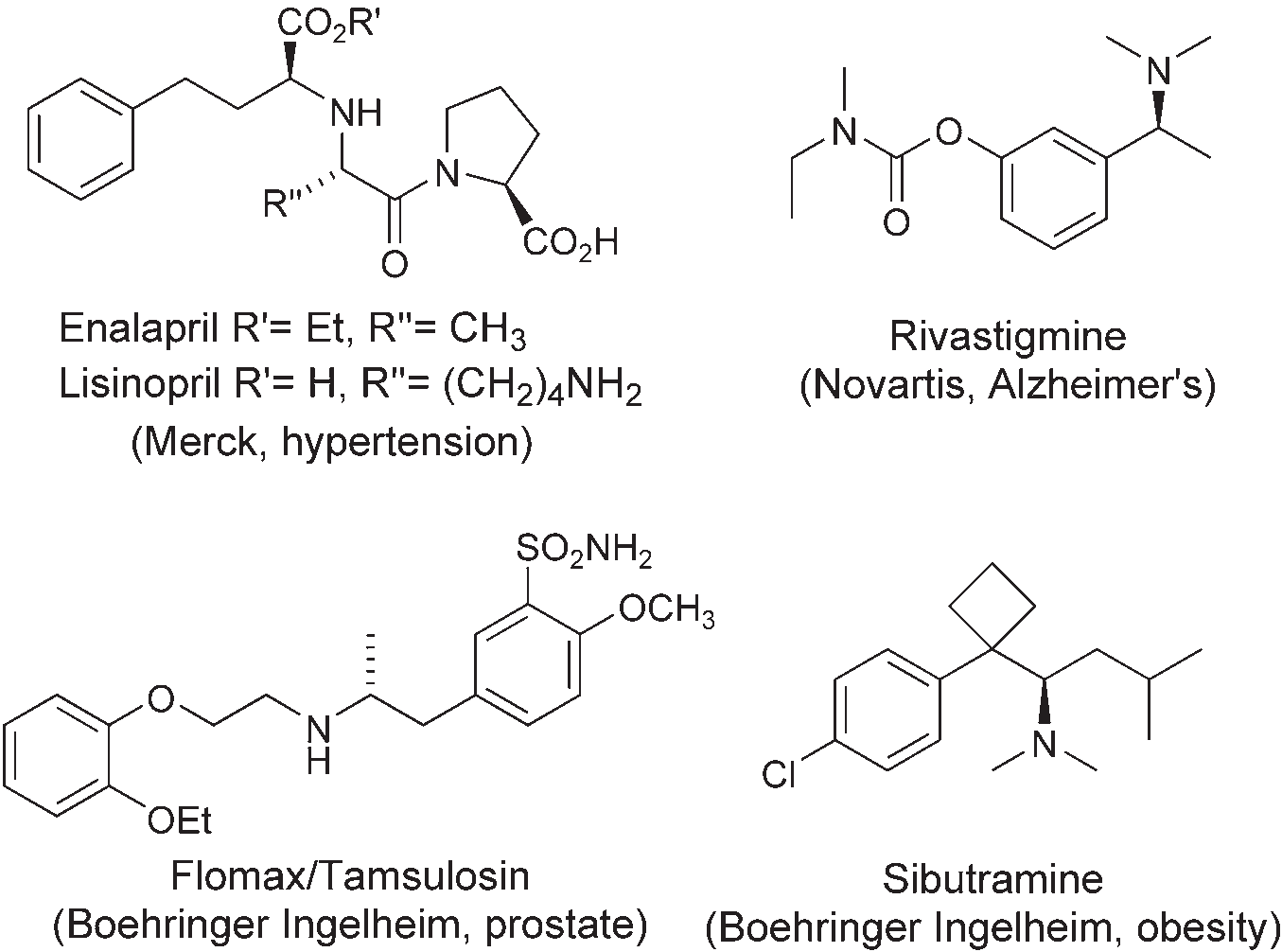Enalapril
CAS number: 75847-73-3
Enalapril is a dicarboxylic acid monoester that is ethyl 4-phenylbutanoate in which a hydrogen alpha to the carboxy group is substituted by the amino group of L-alanyl-L-proline (S-configuration). It has a role as a prodrug, an EC 3.4.15.1 (peptidyl-dipeptidase A) inhibitor, an antihypertensive agent and a geroprotector. It is a dicarboxylic acid monoester and a dipeptide. It is functionally related to an enalaprilat (anhydrous).
Related images

Pharmaceutical drugs containing a-chiral amine stereocenters: enalapril, lisinopril, rivastigmine, Flomax, TAMSULOSIN, sibutramine.
Related Questions and Answers
A: NPO-2270 is more effective than enalapril in preserving cardiac function and preventing adverse remodeling in murine models of heart failure. It reduces calpain activity and preserves the structural integrity of cardiac proteins such as junctophilin-2, leading to better cardiac function outcomes compared to enalapril.
A: Exposure to Enalapril affects the ability of digestive gland (DG) cells in Mytilus galloprovincialis to regulate volume in response to osmotic changes and activates an immune response characterized by increased haemocyte infiltration. However, it does not significantly affect cell viability, oxidative stress markers, or the expression and localization of stress-related proteins (HSP70 and HSP90).
A: Efficacy and Safety: The study found that both enalapril and propranolol, either alone or in combination, are effective and safe in maintaining cardiovascular stability and do not negatively impact neurologic recovery after severe TBI.
Neurologic Outcomes: Propranolol showed a slightly better effect on long-term Glasgow Outcome Scale-extended (GOS-E) scores compared to other treatment strategies, indicating improved neurologic recovery.
Mortality and Other Outcomes: There was no significant difference in mortality rate, ventilator dependency, hospital length of stay, or speech function (measured by the Apraxia of Speech Rating Scale) among the groups treated with enalapril, propranolol, or both compared to the control group.
Conclusion: Enalapril and propranolol are both effective and safe for use in severe TBI patients. Propranolol may offer a slight advantage in long-term neurologic recovery, but larger randomized controlled trials are recommended to further validate these findings.
Neurologic Outcomes: Propranolol showed a slightly better effect on long-term Glasgow Outcome Scale-extended (GOS-E) scores compared to other treatment strategies, indicating improved neurologic recovery.
Mortality and Other Outcomes: There was no significant difference in mortality rate, ventilator dependency, hospital length of stay, or speech function (measured by the Apraxia of Speech Rating Scale) among the groups treated with enalapril, propranolol, or both compared to the control group.
Conclusion: Enalapril and propranolol are both effective and safe for use in severe TBI patients. Propranolol may offer a slight advantage in long-term neurologic recovery, but larger randomized controlled trials are recommended to further validate these findings.